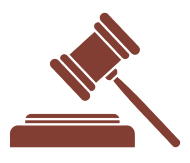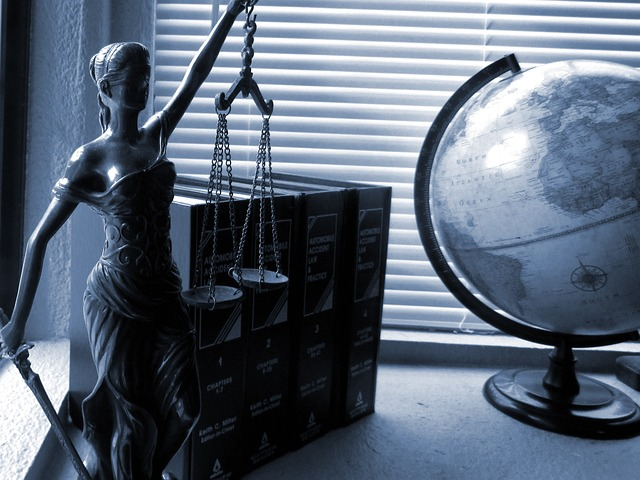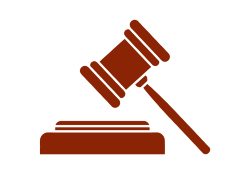The Harding Firm
Criminal Defense
Attorney
Gilbert, Arizona
- 4858 E Baseline Rd STE 109 Mesa, AZ 85206
- (480) 442-4142
- [email protected]
- Office Hours M-F 8:00am - 4:00PM
We also provide Criminal Defense Services in the following cities
Criminal Defense
Attorney
Gilbert, Arizona

To Set Up a Consultation
Call (480) 442-4142
We Also Provide Criminal Defense Services in the following cities in Arizona
Criminal Defense Attorney Gilbert, AZ: The Crucial Role We Play
Navigating the legal system can be a daunting task, especially when facing criminal charges. The criminal justice system is complex and overwhelming, making it crucial to have a competent criminal defense attorney by your side. In Gilbert, AZ, where the legal landscape can be uniquely challenging, this becomes even more important.
Table of Contents
ToggleUnderstanding the Importance of a Criminal Defense Attorney
 A criminal defense attorney plays a vital role in criminal defense services ensuring that the rights of an accused person are protected. They provide counsel, represent the accused in court, and work tirelessly to achieve the best possible outcome for their client. Whether you’re facing minor charges or serious allegations, the expertise of a criminal defense attorney is invaluable.
A criminal defense attorney plays a vital role in criminal defense services ensuring that the rights of an accused person are protected. They provide counsel, represent the accused in court, and work tirelessly to achieve the best possible outcome for their client. Whether you’re facing minor charges or serious allegations, the expertise of a criminal defense attorney is invaluable.
With extensive experience in handling criminal or DUI cases, they are committed to providing thorough legal representation from initial consultation through to trial, navigating the justice system effectively to achieve favorable outcomes for clients.
The consequences of a criminal conviction can be severe, including hefty fines, probation, and even imprisonment. Beyond these legal penalties, a conviction can also lead to social stigma and difficulties in finding employment or housing. A skilled criminal defense attorney can help mitigate these consequences, fighting for a dismissal, reduced charges, or a lighter sentence
The Role of a Criminal Defense Attorney in Gilbert, AZ
In Gilbert, AZ, a criminal defense attorney not only needs to have a deep understanding of the law but also needs to be familiar with the local courts, judges, and prosecutors. This local expertise can often make a significant difference in the outcome of a case.
Some attorneys at our firm are former deputy county attorneys, bringing valuable insights from their previous roles working alongside prosecutors.
Gilbert’s legal landscape is shaped by Arizona’s state laws, local ordinances, and the particularities of its court system. A local criminal defense lawyer is well-versed in these specifics and can navigate the system effectively. They can anticipate the strategies of local prosecutors, negotiate plea deals, and present your case in the most favorable light to the judge and jury.
Misdemeanors vs Felonies in Arizona
In Arizona, criminal offenses are categorized into two main types: misdemeanors and felonies.
Misdemeanors are considered less serious offenses and carry a maximum sentence of up to six months in jail and/or a fine. They are further classified into three classes, with class 1 misdemeanors being the most serious and class 3 being the least severe. Examples of misdemeanors in Arizona include certain traffic offenses like DUI and reckless driving, petty theft such as shoplifting, and disorderly conduct like disturbing the peace. Many misdemeanor cases are handled in the Gilbert Municipal Court. Punishments for misdemeanors can include probation, community service, and mandatory classes or counseling.
Felonies, on the other hand, are more serious offenses that carry a maximum sentence of more than one year in prison. Felonies in Arizona include certain drug offenses like possession of large amounts of drugs, aggravated assault which includes an attack that causes serious physical injury, and murder which involves the intentional killing of another person. Felonies also carry more severe consequences than misdemeanors, such as loss of voting rights, the right to own firearms, and potential difficulties in finding employment or housing. Sentences for felonies can also include fines and restitution, which involves the payment of money to the victim.
 Arizona uses a class system for felonies, classifying them from 1 to 6, with class 1 being the most severe and class 6 being the least severe. The class of the felony determines the range of punishment, with class 1 felonies having the longest sentence and class 6 having the shortest.
Arizona uses a class system for felonies, classifying them from 1 to 6, with class 1 being the most severe and class 6 being the least severe. The class of the felony determines the range of punishment, with class 1 felonies having the longest sentence and class 6 having the shortest.
It’s important to note that the specific charges and penalties for a criminal offense may vary depending on the circumstances of the case, the criminal history of the individual, and the discretion of the prosecutor and the court. Therefore, it’s always best to consult an attorney familiar with Arizona criminal law to understand the specific charges and potential penalties in a particular case.
Understanding Criminal Defense
Criminal defense is a complex field that encompasses various types of cases, from misdemeanors like petty theft or DUI to felonies such as assault or murder. Each type of case requires a different defense strategy, and a seasoned criminal defense attorney who has practiced criminal law for many years can adapt their approach based on the specifics of your case.
The process of criminal defense begins long before the trial. It starts with the attorney’s investigation of the case, where they scrutinize the prosecution’s evidence, interview witnesses, and gather information that can support your defense. They also guide you through pre-trial proceedings, such as bail hearings or plea negotiations.
In the courtroom, the defense attorney’s role becomes even more critical. They challenge the prosecution’s case, cross-examine their witnesses, have criminal defense lawyers present evidence in your favor, and argue on your behalf. Their goal is to create reasonable doubt in the minds of the jury, aiming to prevent a guilty verdict.
Types of Criminal Cases Handled by Criminal Defense Attorneys
Criminal defense attorneys handle a wide array of cases, each with its unique complexities and legal considerations. Some of the most common types of cases they deal with include:
DUI/DWI Cases
 Driving under the influence (DUI), also known as driving while intoxicated (DWI), is a common offense in Gilbert, AZ. A conviction can lead to severe penalties, including license suspension, fines, and even jail time. A criminal defense expert can challenge the validity of the sobriety tests, negotiate for lesser charges, or argue for alternative sentencing like rehabilitation programs. Underage DUI charges are also serious charges, especially if it results in a car accident. The Harding Firm also specializes in DUI/DWI cases in Gilbert, AZ.
Driving under the influence (DUI), also known as driving while intoxicated (DWI), is a common offense in Gilbert, AZ. A conviction can lead to severe penalties, including license suspension, fines, and even jail time. A criminal defense expert can challenge the validity of the sobriety tests, negotiate for lesser charges, or argue for alternative sentencing like rehabilitation programs. Underage DUI charges are also serious charges, especially if it results in a car accident. The Harding Firm also specializes in DUI/DWI cases in Gilbert, AZ.
Drug Crimes
 Drug-related offenses can range from simple possession to trafficking. The severity of the charges and penalties largely depends on the type and quantity of the drug involved. A defense attorney can question the legality of the search and seizure, argue for a reduction of charges, or advocate for treatment options instead of incarceration.
Drug-related offenses can range from simple possession to trafficking. The severity of the charges and penalties largely depends on the type and quantity of the drug involved. A defense attorney can question the legality of the search and seizure, argue for a reduction of charges, or advocate for treatment options instead of incarceration.
Violent Crimes
Violent crimes such as assault, robbery, or murder carry heavy penalties. A defense attorney can challenge the prosecution’s evidence, present mitigating circumstances, or argue for self-defense or other legal justifications.
White-Collar Crimes
White-collar crimes include non-violent offenses like fraud, embezzlement, or insider trading. These cases often involve complex financial evidence, making the role of a law firm and a defense attorney crucial in dissecting the evidence and building a strong defense.
The Process of Criminal Defense: Step-by-Step
Understanding the process of criminal defense can help alleviate some of the stress associated with facing criminal charges. Here’s a step-by-step guide to what you can expect:

- Arrest and Booking: After being arrested, you’ll be taken to the police station for booking. This is when your personal information and the details of the alleged crime are recorded.
- Initial Appearance: You’ll appear before a judge who will inform you of your charges and your rights. The judge will also decide whether you can be released on bail.
- Hiring a Defense Attorney: This is when you should seek the services of a criminal defense attorney. They will review your case, advise you on the best course of action, and start building your defense.
- Discovery and Investigation: Your attorney will gather all necessary information about your case, including police reports, witness statements, and any other evidence. They may also hire a private investigator or expert witnesses to strengthen your defense.
- Plea Bargaining: Your attorney may negotiate with the prosecutor to reduce your charges or the severity of your sentence. This often involves pleading guilty to a lesser offense.
- Trial: If a plea deal isn’t reached or isn’t in your best interest, your case will go to trial. Your attorney will present your defense and challenge the prosecution’s case.
- Sentencing: If you’re found guilty, the judge will determine your sentence based on the severity of the crime, your criminal history, and other factors.
- Appeal: If you’re convicted, your attorney can help you file an appeal, challenging the validity of the conviction or the fairness of the trial.
Choosing the Right Criminal Defense Attorney
Selecting the right criminal defense attorney is a critical decision that can significantly impact the outcome of your case. Here are some factors to consider:
Experience and Expertise
Look for an attorney who specializes in criminal defense and has substantial experience handling cases similar to yours. They should be familiar with the laws and procedures pertaining to your charges and have a track record of successful outcomes.
Local Knowledge
An attorney, like the Harding Firm, with local expertise can be a valuable asset. They will be familiar with the local courts, judges, prosecutors, and other Gilbert attorneys which can give them an edge in negotiating plea deals or arguing your case in court. Knowing the ins and outs of Gilbert’s Superior Court is extremely helpful when dealing with criminal charges in the Gilbert, AZ area. Additionally, some attorneys are recognized by the National Trial Lawyers for their excellence in criminal defense, further underscoring their commitment to client advocacy.
Reputation
A good reputation is often indicative of an attorney’s competence and professionalism. Look for client reviews and testimonials to get a sense of their reputation.
Communication and Accessibility
Your attorney should be easily accessible and willing to answer your questions and concerns promptly. They should keep you informed about the progress of your case and explain complex legal concepts in a way you can understand.
The Harding Firm’s Approach to Criminal Defense
At The Harding Firm, we understand the gravity of facing criminal charges and the impact it can have on your life. That’s why we are committed to providing aggressive, personalized, and effective legal representation to our clients.
Our team of experienced criminal defense attorneys, who have graduated from prestigious law schools, specializes in a wide range of criminal cases, including DUI/DWI, sex crimes, drug crimes, violent crimes, and white-collar crimes. We are well-versed in Arizona’s criminal laws and the Gilbert court system, allowing us to navigate these complex landscapes effectively.
We believe in a client-centered approach, where we take the time to understand your situation, answer your questions, and keep you informed throughout the process. We work tirelessly to build a strong defense strategy tailored to your specific case, aiming to protect your rights and achieve the best possible outcome.
SERVICE FAQ's
A criminal defense attorney plays a critical role in representing individuals who have been charged with a crime. Their responsibilities include:
- Legal Counsel: Providing advice on the charges you are facing and your rights under the law.
- Case Investigation: Conducting a thorough investigation of the case to uncover evidence and build a strong defense strategy.
- Negotiation: Engaging in plea bargaining with the prosecution to potentially reduce charges or penalties.
- Representation in Court: Advocating for you during trials, hearings, and any legal proceedings.
- Post-Conviction Support: Assisting with appeals or seeking reduced sentencing if necessary.
Helpful Steps:
- Schedule a consultation with a criminal defense attorney as soon as possible.
- Gather all relevant documents and evidence to share with your attorney.
- Be open and honest with your attorney to allow them to build the best defense.
The cost of hiring a criminal defense attorney can vary widely based on several factors:
- Complexity of the Case: More complex cases require more time and resources, increasing costs.
- Attorney’s Experience: Highly experienced attorneys may charge higher fees.
- Geographic Location: Legal fees can differ significantly based on location.
Fee Structures:
- Hourly Rate: Clients are billed for each hour the attorney works on the case.
- Flat Fee: A single, upfront payment for the entire case.
- Retainer: An upfront fee that is used to cover future legal expenses.
Helpful Steps:
- Discuss fees and payment plans upfront with your attorney.
- Request a written agreement detailing the cost and services included.
- Consider the potential cost savings of a favorable outcome versus the cost of legal representation.
Understanding the differences between a public defender and a private attorney is crucial for making an informed decision about legal representation:
Public Defender:
- Government-appointed for those who cannot afford a private attorney.
- Often have heavy caseloads, which may limit the time available for each case.
- Experienced and knowledgeable but may not provide the personalized attention a private attorney can.
Private Attorney:
- Hired directly by the defendant.
- Can offer more personalized attention and potentially more resources for the case.
- May have more flexibility in handling complex or high-stakes cases.
Helpful Steps:
- Evaluate your financial situation to determine eligibility for a public defender.
- Consider the potential benefits of hiring a private attorney for more dedicated representation.
- Consult with multiple attorneys to find the best fit for your needs and budget.
If you’re arrested, it’s vital to take the following steps to protect your rights:
- Stay Calm and Composed: Keep your emotions in check to avoid escalating the situation.
- Exercise Your Right to Remain Silent: Inform the officers that you choose to remain silent and refrain from making any statements.
- Request an Attorney: Ask for legal counsel immediately and do not discuss your case without an attorney present.
- Do Not Resist Arrest: Comply with the officers to avoid additional charges.
- Document Everything: Note important details about the arrest, such as the time, location, and officers involved.
Helpful Steps:
- Contact a trusted friend or family member to inform them of your arrest.
- Write down everything you remember about the arrest once you have the opportunity.
- Contact The Harding Firm for experienced legal representation.
No, a criminal defense attorney cannot guarantee a specific outcome in a case due to the unpredictable nature of the legal process. However, an experienced attorney can:
- Assess Your Case: Provide an honest assessment of your situation and potential outcomes.
- Develop a Strategy: Create a defense strategy tailored to your specific circumstances.
- Advocate for You: Work diligently to protect your rights and achieve the best possible result.
Helpful Steps:
- Set realistic expectations based on your attorney’s assessment.
- Stay informed about the progress of your case and potential developments.
- Follow your attorney’s advice and instructions throughout the legal process.
After an arrest, you will go through the booking process, which involves:
- Personal Information Collection: Officers will record your personal information, including your name and address.
- Photograph and Fingerprints: You will be photographed and fingerprinted as part of the criminal record.
- Search: A search for any weapons or contraband will be conducted.
- Property Inventory: Personal belongings will be cataloged and stored until your release.
Helpful Steps:
- Cooperate with the officers during the booking process.
- Inform the officers of any medical conditions or medications you need.
- Request to make a phone call to inform a family member or attorney of your situation.
An arraignment is the first formal court appearance where you will:
- Hear the Charges: The judge will read the charges against you.
- Enter a Plea: You will be asked to plead guilty, not guilty, or no contest.
- Bail Consideration: The judge will determine whether bail is appropriate and set the amount if applicable.
Helpful Steps:
- Consult with your attorney before the arraignment to understand your options.
- Decide on your plea with your attorney’s guidance.
- Prepare any necessary bail arrangements if bail is granted.
Plea bargaining is a negotiation process where the defense and prosecution agree on a plea deal. This may involve:
- Reduced Charges: Pleading guilty to a lesser charge than initially filed.
- Lighter Sentencing: Receiving a more lenient sentence in exchange for a guilty plea.
- Dismissed Charges: Some charges may be dropped as part of the agreement.
Helpful Steps:
- Discuss the pros and cons of a plea bargain with your attorney.
- Consider the potential outcomes and long-term impacts of accepting a plea deal.
- Ensure any plea agreement is documented and approved by the court.
Preparing for a court appearance is crucial for presenting yourself positively and understanding the legal proceedings:
- Dress Appropriately: Wear formal attire to show respect for the court.
- Understand Court Etiquette: Be punctual, address the judge respectfully, and follow courtroom procedures.
- Review Your Case: Familiarize yourself with the details of your case and your defense strategy.
Helpful Steps:
- Practice answering questions and presenting your case with your attorney.
- Gather any necessary documents or evidence to bring to court.
- Arrange transportation and childcare in advance to ensure you arrive on time.
Our Criminal Defense Areas of Practice


